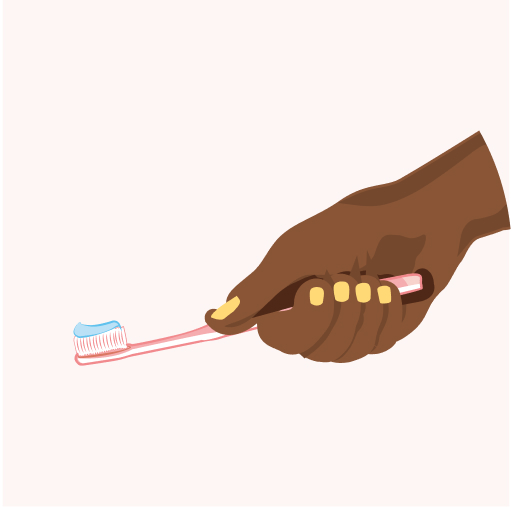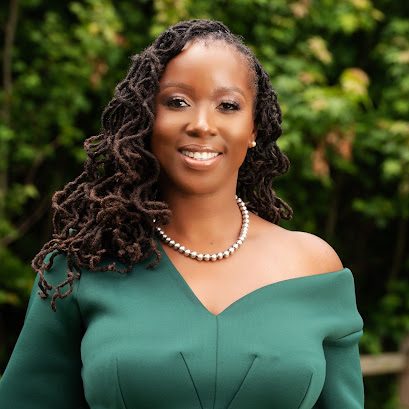
Organic, Biologic, Holistic Dentistry, Oh My!
Understanding Holistic Dentistry
Holistic dentistry treats the oral cavity comprehensively, including your physical, emotional, and spiritual well-being. Although holistic dentistry has been around for many years, it was recognized in 1978 by the founding of the Holistic Dental Association to make patients aware of a more natural practice of dentistry. Although this alternative method is not considered a dental specialty, nor is it taught in dental schools, many patients seek the services of a dentist using biocompatible materials. Biocompatible materials perform a specific function without causing toxicity to the oral cavity or invoking other systemic responses. Using materials such as porcelain or ceramic for tooth restoration offers better aesthetics and little to no inflammatory response.
The Urgency for Black Women and Women of Color
As Black women and women of color, we have been tearing down walls and breaking glass ceilings for many years, yet more work still needs to be done. So, who has time to be home with tooth pain? Chile, not me. Whether you commute to work or work from home, tooth pain can cause disruption to your plans. Like childbirth or labor pains, as some have described it, you will not know how long it will last until it finally stops. Therefore, prevention is the best medicine, and the best way to prevent dental pain is to live a healthy lifestyle that includes proper nutrition, exercise, adequate sleep, and self-care.
Principles and Practices in Holistic Dentistry
Research suggests holistic dentists believe in “balancing body chemistry.” This belief is based on a few fundamental principles followed by holistic dentists, including:
- Recommending proper nutrition,
- Avoiding toxins such as dental amalgam used in cavity fillings
- Sanitizing periodontal pockets using natural materials
- Preventing and treating dental malocclusion or improper seating of the teeth
Moreover, an initial examination with a holistic dentist, also called an organic or biological dentist, will be a more extensive diagnostic visit than that you would find in a traditional office. Although there are many differences, similarities do exist. Traditional dental offices are moving away from using an X-ray system that involves lead-foiled film packets and a solution used in the film’s development known as Fixer. In most cases, a digital x-ray system is the current standard of care, reducing the amount of radiation exposure.
RELATED: Selfies and Smiles: Dispelling Myths About Your Oral Health
Additional Holistic Approaches
There are other principles followed or recommended by holistic dentistry, including:
- Proper nutrition and dietary habits promote better oral health outcomes. A subcomponent of the American Dental Association states if, “if your diet lacks certain nutrients, it may be more difficult for tissues in your mouth to resist infection. Severe gum disease is a major cause of tooth loss in adults.”
- Hypnosis is also used to bring the body to a relaxed state. Once the body is relaxed, it is believed that anxiety is reduced, and pain can be controlled without traditional medications.
- Homeopathic therapy is a nonaddictive treatment used to improve the psychological and physical status of the patient.
- Aromatherapy is one homeopathic source of treatment that uses pure oils to aid in relaxation. Other essential oils, including clove, cinnamon, spearmint, tea tree, and eucalyptus, have been shown to have antibiotic properties when used to treat periodontal disease.
- Ozone and Oxygen therapy are also used in holistic dentistry. These natural alternatives are said to sterilize periodontal pockets in patients with gum disease. Ozone therapy involves oxygenizing the water during dental procedures, utilizing pre-oxygenized oils, or direct use into the periodontium for sterilization.
The Fluoride Debate
Traditional dentistry has long been a fan of the use of fluoride in the prevention and treatment of dental caries. In fact, according to the Centers for Disease Control and Prevention, “Drinking fluoridated water keeps teeth strong and reduces cavities (also called tooth decay) by about 25% in children and adults. By preventing cavities, community water fluoridation has been shown to save money both for families and for the US health care system.” Alternatively, organic dentistry teaches that ingested fluoride can be linked to cancer and cause bone-related disorders such as skeletal fluorosis. The National Institute of Health describes skeletal fluorosis as a bone disease caused by excessive fluoride accumulation, leading to the bones gradually hardening over time. Therefore, holistic dentistry does not recommend using fluoride to prevent caries from forming through community water fluoridation or as a preventive treatment.
We Have Choices
What we know is that there are pros and cons to everything in our modern lifetime. The important thing to remember is that we have choices regarding our healthcare. Given the proper tools, we can make the most informed decisions. Most holistic healthcare users choose alternatives over traditional medicine, likely due to their beliefs and close alignment with their paths in life. Whether it is evidence-based or not, the choice is that of the patient. Therefore, we must be encouraged to research alternatives and make educated decisions about the health of ourselves and our families.
More Content
Oral Health
Selfies and Smiles: Dispelling Myths About Your Oral Health
Today more than ever, social media has...












